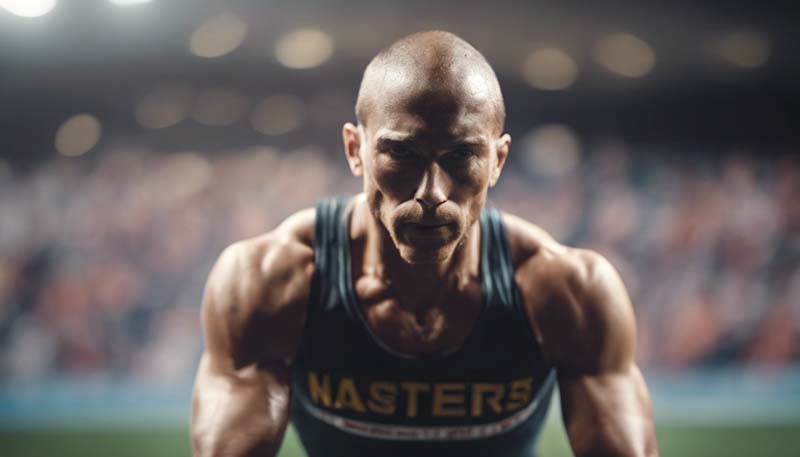Nutrition Needs of Masters Athletes in Sports
2024-05-23
Introduction
Masters athletes are individuals who continue to participate in sports and physical activities well into their middle and later years of life. These athletes often face unique challenges when it comes to maintaining optimal health and performance, including changes in metabolism, muscle mass, and energy levels. One of the most critical factors in addressing these challenges is proper nutrition. In this article, we will explore the specific nutritional needs of masters athletes in sports, including macronutrient and micronutrient requirements, hydration, and supplementation.
Macronutrient Requirements
Macronutrients are the primary sources of energy for the body, including carbohydrates, proteins, and fats. The specific macronutrient needs of masters athletes will vary depending on factors such as age, body composition, and the type and intensity of their training. However, some general guidelines can be followed to ensure optimal performance and recovery.
1. Carbohydrates: Carbohydrates are the primary source of energy for high-intensity exercise and are particularly important for endurance athletes. Masters athletes may require a higher carbohydrate intake to maintain energy levels and support muscle glycogen storage. The recommended intake is 6-10 grams of carbohydrates per kilogram of body weight per day.
Advertisement
2. Protein: Protein is essential for muscle repair and growth, and masters athletes may require a higher protein intake to maintain or increase muscle mass. The recommended intake is 1.2-2.0 grams of protein per kilogram of body weight per day, depending on the individual\'s training intensity and goals.
3. Fats: Fats are a secondary source of energy and are important for hormone production and cell membrane function. Masters athletes should aim for a moderate fat intake, with a focus on healthy fats such as omega-3 fatty acids found in fish, nuts, and seeds. The recommended intake is 20-35% of total daily calories from fats.
Micronutrient Requirements
Micronutrients, including vitamins and minerals, play a critical role in maintaining overall health and supporting athletic performance. Some key micronutrients for masters athletes include:
1. Vitamin D: Vitamin D is essential for bone health and immune function. Many masters athletes may be at risk for deficiency due to decreased sun exposure and reduced ability to synthesize vitamin D from sunlight. Aim for 800-1000 IU of vitamin D per day.
2. Calcium: Calcium is crucial for bone health and may help prevent osteoporosis in older athletes. The recommended intake is 1000-1300 mg of calcium per day.
3. Iron: Iron is essential for red blood cell production and oxygen transport. Masters athletes, particularly women, may be at risk for iron deficiency due to decreased absorption and increased losses. Aim for 8-18 mg of iron per day, depending on gender and individual needs.
4. Antioxidants: Antioxidants, including vitamins C and E, help protect cells from damage caused by free radicals generated during exercise. Aim for a diet rich in antioxidant-rich fruits and vegetables.
Hydration
Proper hydration is essential for optimal performance and recovery in masters athletes. Dehydration can lead to decreased performance, increased risk of injury, and impaired cognitive function. Here are some hydration guidelines for masters athletes:
1. Drink water throughout the day, aiming for at least 8 cups (64 ounces) of fluid per day.
2. Monitor urine color and output. Pale yellow urine is a sign of proper hydration, while dark yellow or infrequent urination may indicate dehydration.
3. During exercise, aim for 7-10 ounces of fluid every 10-20 minutes, depending on the intensity and duration of the activity.
4. After exercise, replenish fluids lost through sweat by drinking 16-20 ounces of fluid for every pound of body weight lost.
Supplementation

While a balanced diet should provide all the necessary nutrients for most masters athletes, some individuals may benefit from supplementation to address specific needs or deficiencies. Here are some common supplements for masters athletes:
1. Protein powder: Protein supplementation can help support muscle repair and growth, particularly in masters athletes engaged in resistance training.
2. Omega-3 fatty acids: Omega-3 supplementation may help reduce inflammation and support heart health in masters athletes.
3. Vitamin D: As mentioned earlier, masters athletes may be at risk for vitamin D deficiency. Supplementation may be necessary to achieve optimal levels.
4. Antioxidants: Antioxidant supplementation, such as vitamins C and E, may help reduce oxidative stress and support overall health.
Conclusion
Proper nutrition is critical for the health and performance of masters athletes in sports. By paying attention to macronutrient and micronutrient needs, staying hydrated, and considering supplementation when necessary, masters athletes can maintain optimal health and continue to excel in their chosen sports.
References:
1. American College of Sports Medicine. (2018). ACSM\'s guidelines for exercise testing and prescription (10th ed.). Lippincott Williams & Wilkins.
2. Position of the American Dietetic Association, Dietitians of Canada, and the American College of Sports Medicine: Nutrition and athletic performance. (2009). Journal of the American Dietetic Association, 109(3), 509-527.
3. Volek, J. S., & Rawson, E. S. (2003). Lifestyle and dietary hormone manipulation: Does it affect athletic performance?. Journal of Applied Physiology, 95(5), 2000-2006.
4. Maughan, R. J., & Shirreffs, S. M. (2010). Dehydration and rehydration in competitors. Scandinavian Journal of Medicine & Science in Sports, 20(Suppl 3), 40-47.
5. Institute of Medicine. (2011). Dietary reference intakes for calcium and vitamin D. National Academies Press.
Comments